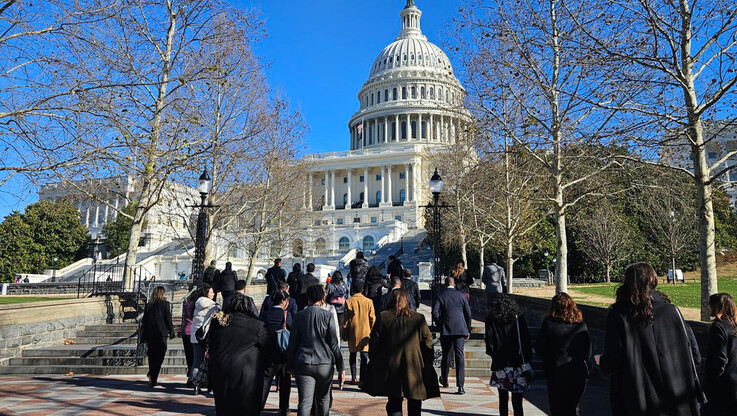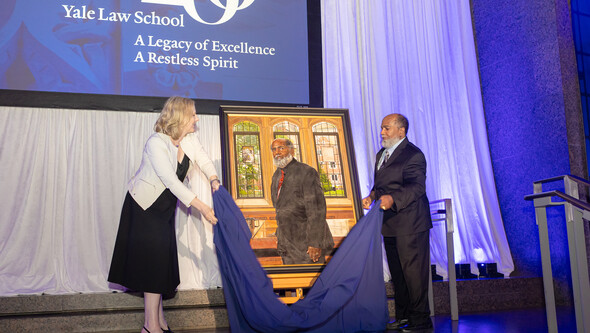
Blueprints for Ending Mass Incarceration
A new book co-edited by Professor James Forman Jr. ’92 gathers perspectives on the mass incarceration crisis in America.

Taylor’s Version (of the Law) Rules in Student-Led Course
The year’s most awaited pop album and a Yale Law School reading group had something in common this spring: both were a study of Taylor Swift’s experience with fame.

Yale Law School Honors Associate Dean Mike Thompson
After 34 years at Yale Law School, Associate Dean Mike Thompson retired at the end of the 2024 academic year.

White Paper Addresses Key Issues in Legal Battles over Gender-Affirming Health Care
A new white paper from The Integrity Project provides an evidence-based critique of a recent independent review that has become central to U.S. litigation regarding health care for transgender youth.

Ephemeral Streams Likely to Have Significant Effect on U.S. Water Quality
A new study co-authored by Yale researchers — including Joseph M. Field '55 Professor of Law Douglas Kysar — quantifies the consequences of a U.S. Supreme Court decision that weakened the Clean Water Act.

Jason Parkin to Join Law School Faculty
Dean Heather K. Gerken has announced that Jason Parkin will join the Yale Law School faculty as a Clinical Professor of Law on July 1, 2024.

Do Checks and Balances Still Apply in Foreign Affairs?
In The National Security Constitution in the 21st Century, Professor Harold Hongju Koh returns to the questions that he has wrestled with throughout his career.

Report Seeks to Prevent Interpersonal Violence in Elite Sports
As the 2024 Summer Olympics and Paralympics in Paris approach, a new report analyzes the issue of interpersonal violence in international sport.




